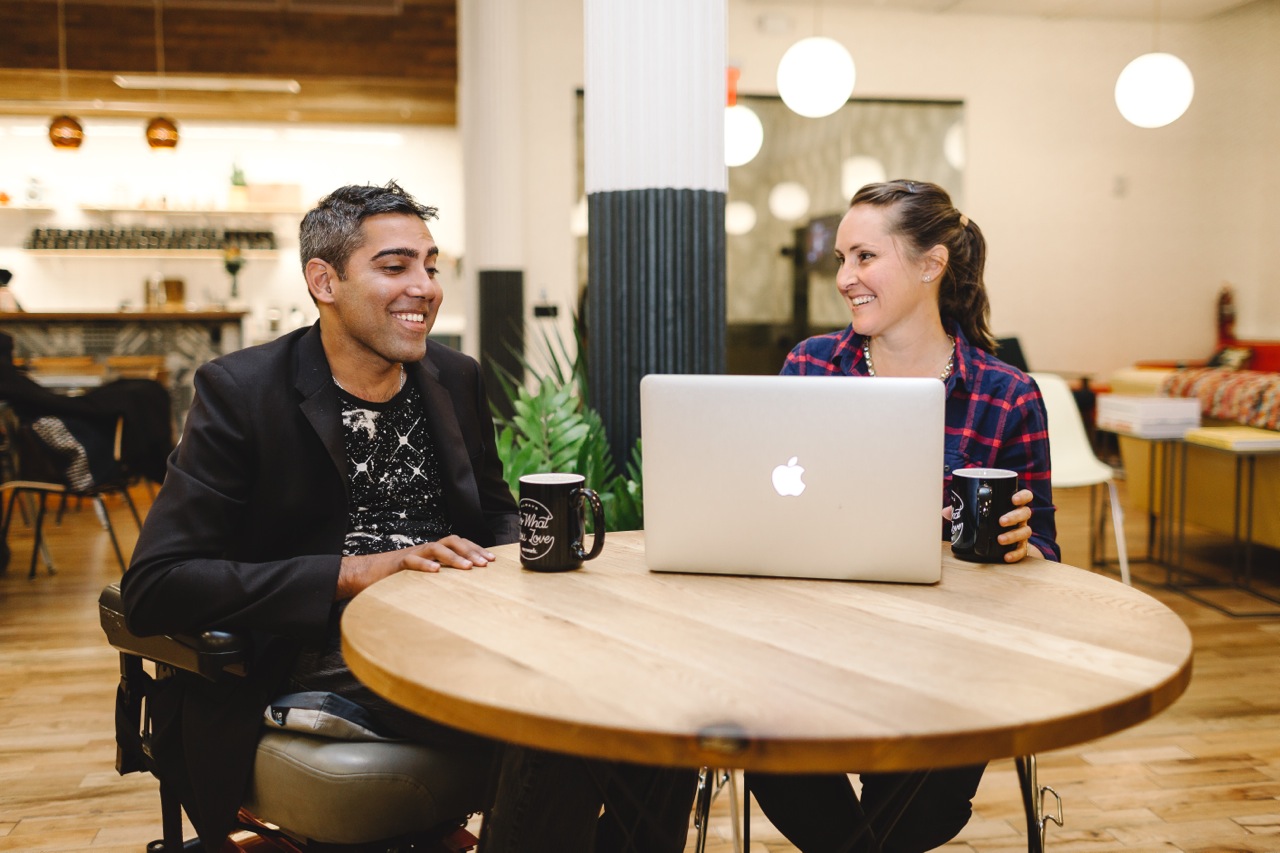While on vacation in the Caribbean, Jason DaSilva was standing with his family as they watched planes fly low over Maho Beach on St. Maarten. Without warning, he collapsed on the narrow strip of sand.
He couldn’t make it to his feet, no matter how many times his brother tried to pick him up. This was nine years ago, not long after he had been diagnosed with multiple sclerosis, a degenerative disease that eats away at the brain and spinal cord. For the first time he was rattled by the reality that his condition was never going to improve.
“That’s when I started on the journey of making my film,” says DaSilva, who directed the award-winning documentary called When I Walk, which debuted at the Sundance Film Festival in 2013.
In the film, DaSilva’s eyes are ablaze as he sits in front of the camera and nudges the record button. It shows him living in a tiny one-bedroom apartment in East Village with his fiancée Alice Cook—they marry in one scene—facing the daily challenges of finding wheelchair accessible places in Manhattan.
Watching the film can be heart wrenching, especially if a loved one has experienced this disease. But DaSilva says his goal was always to produce a practical resource for people with disabilities.
“Film can tell a great story, but it’s for people to watch in theaters or on TV,” DaSilva says. “I wanted to put something out there that can be used in the public space for generations to come.”
His idea? An app to help people find places that are accessible to people with disabilities—sort of a Yelp for those who can’t navigate steps or maneuver around tight corners.
The concept came to him while he was hanging out with his friends in New York City’s East Village. The group kept hopping from restaurant to restaurant to find one that could accommodate his motorized wheelchair.
That was the catalyst for AXS Lab, a nonprofit he co-founded last year with a team of three people, including his wife. Their app, which also launched last year, contains reviews and ratings from about 8,000 registered users on accessible places ranging from cafes and restaurants to libraries and post offices.
By next year, the team hopes the app will have more than 1 million reviewers. To accomplish this they’ve turned it into a game, with users competing in a “Mapathon” to rank the most places in their neighborhoods. Through an ongoing Kickstarter campaign the team is aiming to raise $60,000 to help promote this feature.
On some days, DaSilva joins his wife at their desk in Chelsea’s WeWork Labs, where he answers calls and responds to emails.
“I’m his biggest supporter,” says Cook. She says they are both motivated by the hope that their two-year-old son Jase will one day live in a “100 percent accessible world.”
Although DaSilva says he can’t use his hands to film or edit any longer, he’s still planning to make another documentary—this time about traveling around the world guided by AXS Map and sharing about the progress he’s made with his app. This month, he even had the opportunity to share his AXS Map on a disability panel at the White House.
“The one challenge I have is, my MS doesn’t get any better,” DaSilva says. “It continues to get worse, and I have to adjust to new challenges daily. Other than that, I continue on.”
Photo credit: Emanuel Hahn





